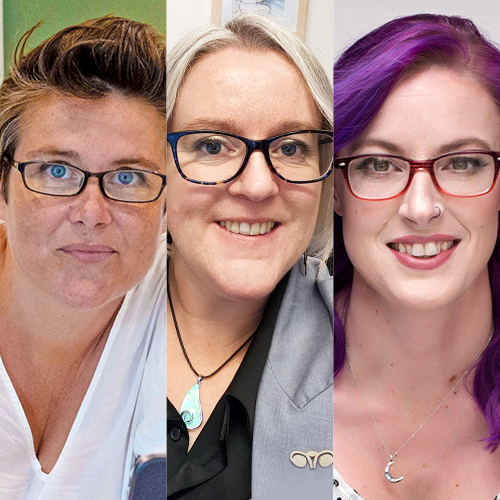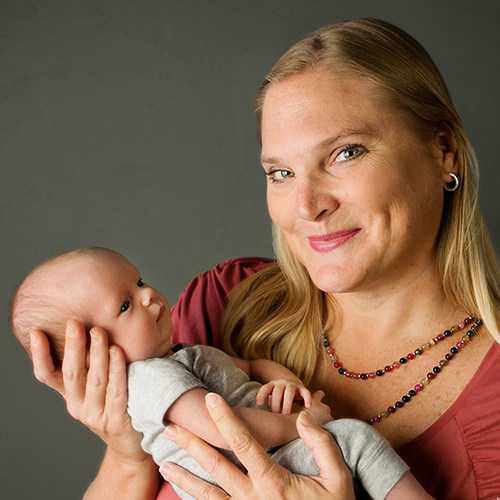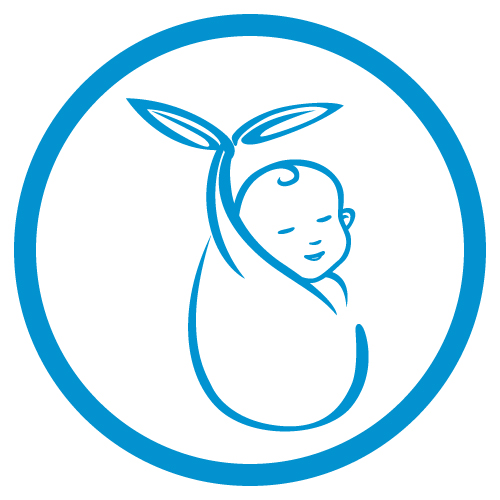 Mediation, Conflict Resolution, Legal Issues Online Course(s) & Continuing Education
Mediation, Conflict Resolution, Legal Issues Online Course(s) & Continuing Education
Access the latest clinical skills and research for Mediation, Conflict Resolution, Legal Issues for MIDWIFERY professional training. These Mediation, Conflict Resolution, Legal Issues online courses provide practice-changing skills and valuable perspectives from leading global experts. This Mediation, Conflict Resolution, Legal Issues education has been accredited for a variety of CEUs / CERPs and can be accessed on-demand, at your own pace.


Augustine is an internationally recognized midwifery educator, experienced business executive, and veteran midwife with a heart focused on the underserved, marginalized, and under-resourced. She respects the importance of being empowered and undisturbed during labor, and balances this attention to the sacred with 20+ years experience attending births in hospitals, birth centers, and homes in rural, urban and suburban environments in the US and abroad. Augustine's focus is finely attuned to the process of letting go and opening to the unknown in labor and in life.Additionally, Augustine has a master's degree from Bastyr University in Seattle, WA where she majored in Maternal/Child Health Systems.
Her life's mission is to mainstream midwifery and deconstruct the culture of fear and misinformation that surrounds the maternity world globally. To that end, Augustine 'midwife's the midwife' through her many education programs, consulting services, product development, podcasts and video production, business site visits, and with private coaching services for midwives, students, maternity practice owners,&birth center administratorsthrough her consulting firm, The Midwifery Wisdom Collective. It is her profound honor to illuminate the sacred path to joyful and sustainable midwifery practice.
Dr Hazel Keedle, PhD, is a Senior Lecturer of Midwifery at The School of Nursing and Midwifery, Western Sydney University. Hazel has more than two decades of experience as a clinician in nursing and midwifery, educator and researcher. Hazel's research interests are vaginal birth after caesarean, birth trauma and maternity experiences explored primarily using feminist mixed methodologies. Hazel's work is recognised nationally and internationally, with many invited conference and seminar presentations including academic publications and a book for women based on her PhD findings 'Birth after Caesarean: Your Journey to a Better Birth'. Hazel is the lead researcher on the largest maternity experiences survey, The Birth Experience Study. Hazel is also the Co-Editor in Chief of The Practising Midwife Australia from All4Maternity which was launched in September 2022.
Cassandra (pronouns: she/her) is driven by her lived experiences as a survivor, midwife, and advocate, to draw attention to the intersectionality of gender-based violence during the perinatal period. she is passionate about investigating stakeholder responses and their impacts on sexual, reproductive, and overall health outcomes. Her work is informed by an inclusive and anti-oppressive lens to identify responder-inflicted harms, barriers, and facilitators to help-seeking and health equity.
She is passionate about initiating innovative strategies that narrow gaps in access to culturally sensitive responses to gender-based violence. Cassandra believes in survivor autonomy and seeks to decrease revictimization, morbidity, and mortality using survivor-centered approaches in tandem with trauma-informed practices that emphasize the complexities of gender-based violence. She is a blissfully happy military spouse and mother of 4 incredible children who inspire her daily. Cassandra has her Masters in Maternal-Child Health Systems from Bastyr University, is a Certified Professional Midwife (CPM)
Family members and other support people are an important part of the birth experience but what do we do when their behaviour is disruptive for the birthing parent? Family centered maternity care means caring not just for the person in labour, but also for those they have chosen to be in the birth room for support. Join us for an engaging panel discussion that will explore the potential reasons for disruptive behaviour from family members, the impact of the midwife’s own emotional regulation and helpful strategies for turning family members and other support people in the birth room into supportive allies.


A love for babies fueled Kimberly's 20+ year career serving families in the postpartum time frame. With a passion for nurturing new parents, she trains doulas and educators with CAPPA to support and educate for a strong beginning of bonding and connection. She loves teaching expectant families to have a smooth transition to new baby life through the Providence Healthcare System in Portland, OR. She began as a postpartum doula, then quickly added breastfeeding and new parent classes to help parents from the very beginning, and then became an IBCLC to meet their bigger challenges. She owns ABC Doula & Newborn Care in Portland, OR, is the mother of 2 grown kids, and resides in Phoenix near her parents. Like many other baby whisperers, Kimberly has honed skills for listening and responding to babies that parents can quickly learn to understand and interpret their tiny humans. When she sees parents struggling, and especially with the most fussy of babies, her heart hopes that all parents could be given the tools to compassionately support their little ones, and learn how to meet their needs, which creates more confidence in themselves in their new roles as well.
Topic: Understanding Infant Crying - [View Abstract]
How much crying is too much crying? When parents reach out with questions about their babies crying, what parameters are available to help guide them to understand their infants? This session will aim to guide professionals who support the newborn family, including offering guidelines for number of hours that are considered normal, descriptions of high and low criers, timelines of expected crying, and solutions and alternatives when the typical approaches don’t seem to work. Utilizing the research on the Crying Curve--a pattern of crying beginning at about 42 weeks of gestation, peaking at 6-8 weeks of age, and sharply declining by 12-15 weeks--parents can navigate newborn life according to their gestational age. 15 different studies have concluded that this pattern is common across infants of all cultures, gestational ages (based on a 40-week gestation), and parenting styles—and the applications are many in the early parenting world. Help families learn to utilize this model to help assess their newborn. Multiple models of interpreting newborn crying from body language to sound and tone to help interpret newborn needs will be shared. Let’s move beyond reassuring parents that “colic” will end by 3 months and offer them solutions and alternatives.

View Details / Enroll









